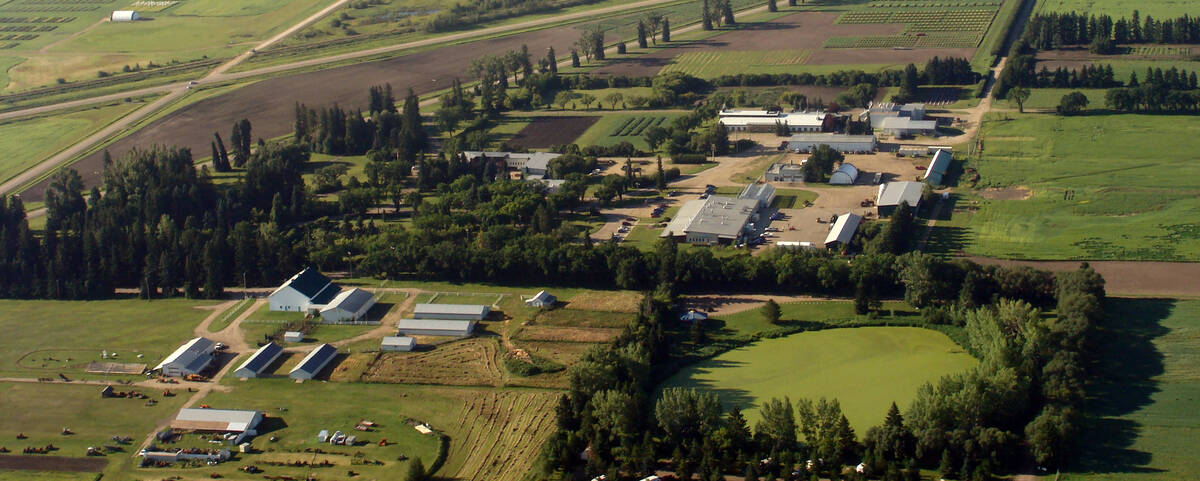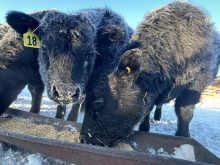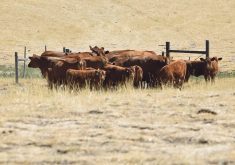AFE contributor
When they name a school after your father, it might be considered a hard act to follow. But it’s not like Art Macklin to ever let anything slow him down. Besides, his passion to “be involved” is something he learned from the hand of his dad.
After some four decades of involvement, Macklin seems no less passionate. Formerly a District 1 director of the Canadian Wheat Board and a president of the National Farmers Union, Macklin says he is “slowing things down a bit.” Not like you would notice.
Read Also

Lacombe research centre closure called ‘catastrophe’
Cattle industry mourns loss of Agriculture Canada’s research centre included in sweeping cuts that were announced late last month.
He is currently involved with Friends of the Canadian Wheat Board, a group of Western Canadian producers mounting a legal challenge about alleged improprieties involved in the federal government’s move to restructure the wheat board.
Macklin’s father, Irving Victor (or I. V. as he was known), came west from eastern Ontario in 1910. Just 22, he made the Grande Prairie area home when it was little more than a mission settlement and small townsite. As the area’s first schoolteacher and magistrate, I. V. was active in the Co-operative Commonwealth Federation, the precursor to today’s NDP, as well as the National Farmers Union. Says Macklin, “I guess some of that rubbed off on me.”
Art was raised on the farm and by the mid 1960s had filed for his own homestead north of Debolt, a tiny community east of Grande Prairie. He started out in partnership with his siblings, sharing 11 quarters with his sister, brother and sister-in-law. In 1972, he married Donna. The farm operation split and the newlyweds were on their own.
“We had about 500 acres in barley, flax… and roots,” said Macklin. “Our first crop was snowed in, and we didn’t harvest much that first year.” There were some tough times, but today the couple, alongside son Nathan, farm 16 quarter-sections.
The Macklins didn’t have the luxuries of power or gas service for the first several years. Trips into town of more than 100 kilometres weren’t common; even important events – like childbirth – were left to chance. Their first child was almost born in the back of a pickup truck. The Macklins eventually decided to get a place in Grande Prairie. The children attended school there and the family has lived between city and country since 1979.
In 1971, Macklin put his name forward as the NDP candidate for the Grande Prairie riding in that year’s provincial election. That year saw Peter Lougheed leading his Progressive Conservative party to victory, breaking a 36-year run by Social Credit. Macklin was unsuccessful but Grant Notley won his seat in the neighbouring Spirit River/Fairview constituency – the only NDP candidate to do so.
It would prove to be the only time Macklin ran for partisan politics, but it was the beginning of what would become a career of political activities. He went on to serve on the national board of the NFU, and was regional co-ordinator and then its president. Macklin also served on number of advisory committees with the CWB before being elected to its Board of Directors in 1999. He has since served two four-year terms on the board. Macklin was also chair of the Canadian International Grains Institute.
Farmers working together
What motivates an already busy farmer and community member to become involved on a national level, year in and out? “I believe in the values represented by the NFU: Farmers working together for economic justice and environmental sustainability,” says Macklin.
He cites a current NFU livestock study that takes a hard look at monopolies controlling the packing industry. The CWB offered similar things, Macklin said. “This is a model where farmers actually have bargaining power in an industry dominated by some pretty big global players,” he says. “By working together, farmers benefit from better bargaining and expertise in negotiating with railways for fair freight rates.”
“I’m really troubled with the tactics being employed by the federal government in an attempt to destroy the CWB,” says Macklin, referring to the December 2007 firing of the board’s CEO Adrian Measner, followed in early 2008 by its vice-president Deanna Allen. Both were supporters of single-desk selling.
Add to that what many allege as questionable plebiscite protocol and government involvement in trying to sway producer opinion in promoting an open market and you’ve got a few good reasons why Macklin is still vocal about the worth of the single-desk system. Without it, he says, the CWB would cease to exist as it would no longer be able to wield the collective power of Canadian producers in rail and price negotiations.
All is not lost, believes Macklin. Friends of CWB, of which he is a member, has launched a legal challenge which alleges that 40 per cent of the voters were excluded from the voting list. “In this district, 48 per cent of producers never received a ballot,” he says. “If you haven’t delivered wheat or barley in the previous or current crop year, you won’t receive a ballot, even though you have a CWB permit book and signed the statutory declaration.”
In the meantime, he still farms full-time, though he concedes he’s not as physically nimble as he once was. The will is still there.
“I feel I have a bit of experience and knowledge, and that I’ve received more than I’ve been given in terms of opportunity and education,” Macklin says. “If someone thinks my contribution is still worthwhile, I’m still prepared to contribute.”
If he sees something he doesn’t think is right, Macklin says he’ll write a letter, pick up the phone or maybe get involved in a court challenge. “I’m still interested” he says.














